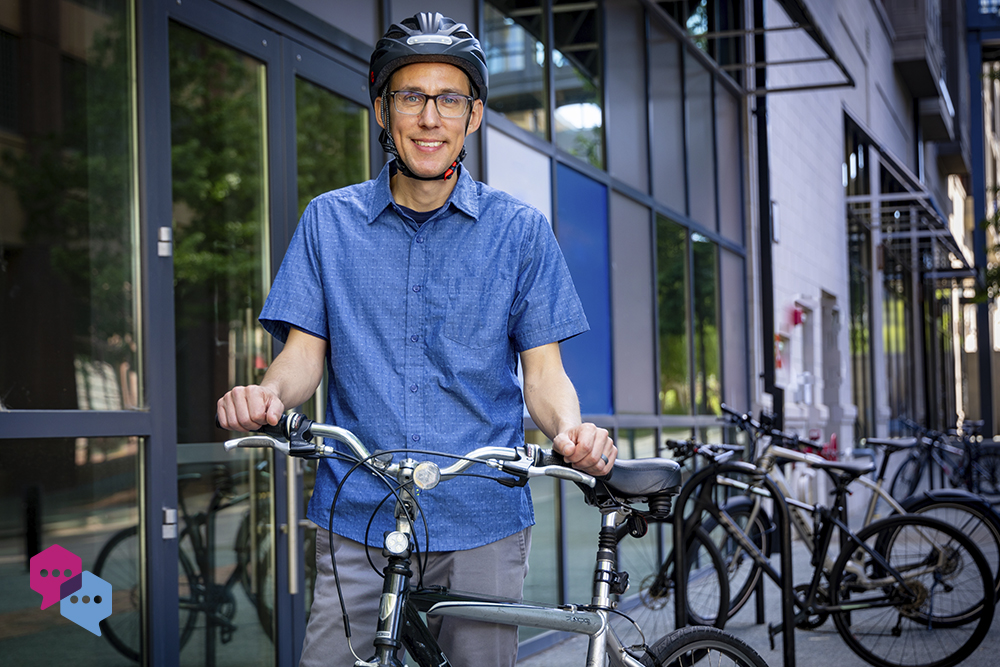Seth LaJeunesse is a senior research associate at the UNC Highway Safety Research Center and assistant director for the National Center for Safe Routes to School. He studies how to accelerate the adoption of equitable and effective road safety and sustainable transportation practices — like walking, bicycling, and using transit — in the United States.
Q: How did you discover your specific field of study?
A: I used to be a school psychologist in Pittsburgh, Pennsylvania. After spending time with dozens of struggling adolescents, I noticed that many expressed feelings of social isolation and loneliness. They shared that they were scared to venture out into their neighborhoods, which they perceived as crime-ridden and overrun with fast-moving cars.
This experience prompted me to seek ways of not conforming people to their often-inhuman environments, but to reshape environments toward rendering them healthier, safer, and more life-affirming. Subsequently, I applied and was accepted to the master’s program in the Department of City and Regional Planning at Carolina. At the same time, I learned that the UNC Highway Safety Research Center (HSRC) was hiring graduate research assistants. I applied, secured a position in 2008, and have been with HSRC ever since.
Q: Academics are problem-solvers. Describe a research challenge you’ve faced and how you overcame it.
A: Over the past 15 years, I’ve learned that people want options for how they get around. But what they most desire from transportation isn’t always reflected in the news or mainstream culture. A couple of years ago, through the support of the Collaborative Sciences Center for Road Safety, my colleagues and I sought to systematically learn about what people in North Carolina most value in their personal transportation.
We surveyed 1,000 people, asking them to rank several transportation values for themselves and others in their communities. Respondents only misjudged others’ values for avoiding traffic jams: 44% believed others placed greater value on avoiding traffic than was actually the case.
I’ve now presented this finding to a number of audiences and each time, one or more people inform me that I’ve changed their thinking about the subject. Also, I learned that Dutch colleagues discovered something strikingly similar in the Netherlands: whereas only 5% of the Dutch population perceive traffic jams as personal a problem, 35% believe traffic congestion to be a social problem. It appears this mistaken belief about our collective concern over traffic jams transcends cultures and continents.
Q: Describe your research in five words.
A: Safe, healthy transportation fosters friendliness.
Q: Who or what inspires you? Why?
A: Everyone who devotes part of their day to making our world a more equitable, just, healthy, safe, and environmentally harmonized place to call home. In short, the entire “caring class,” to borrow a term from the late anthropologist David Graeber, and those who support them. This includes teachers — like my wife, Abby, who teaches preschoolers about the social and natural worlds around them — medical personnel, janitors, food growers and providers, affordable housing developers, researchers, and human rights advocates, to name a few.
Q: If you could pursue any other career, what would it be and why?
A: If I had another eight hours in the day to pursue an entirely different career, I’d make music. Over the course of decades, I’ve played the alto saxophone and piano and still play guitar today. I’m fascinated with the wide palette of tempos, time signatures, modes, and resulting soundscapes. I love music, its intricacies, and its capacity to put me in a contemplative, sorrowful, playful, or energetic state.


